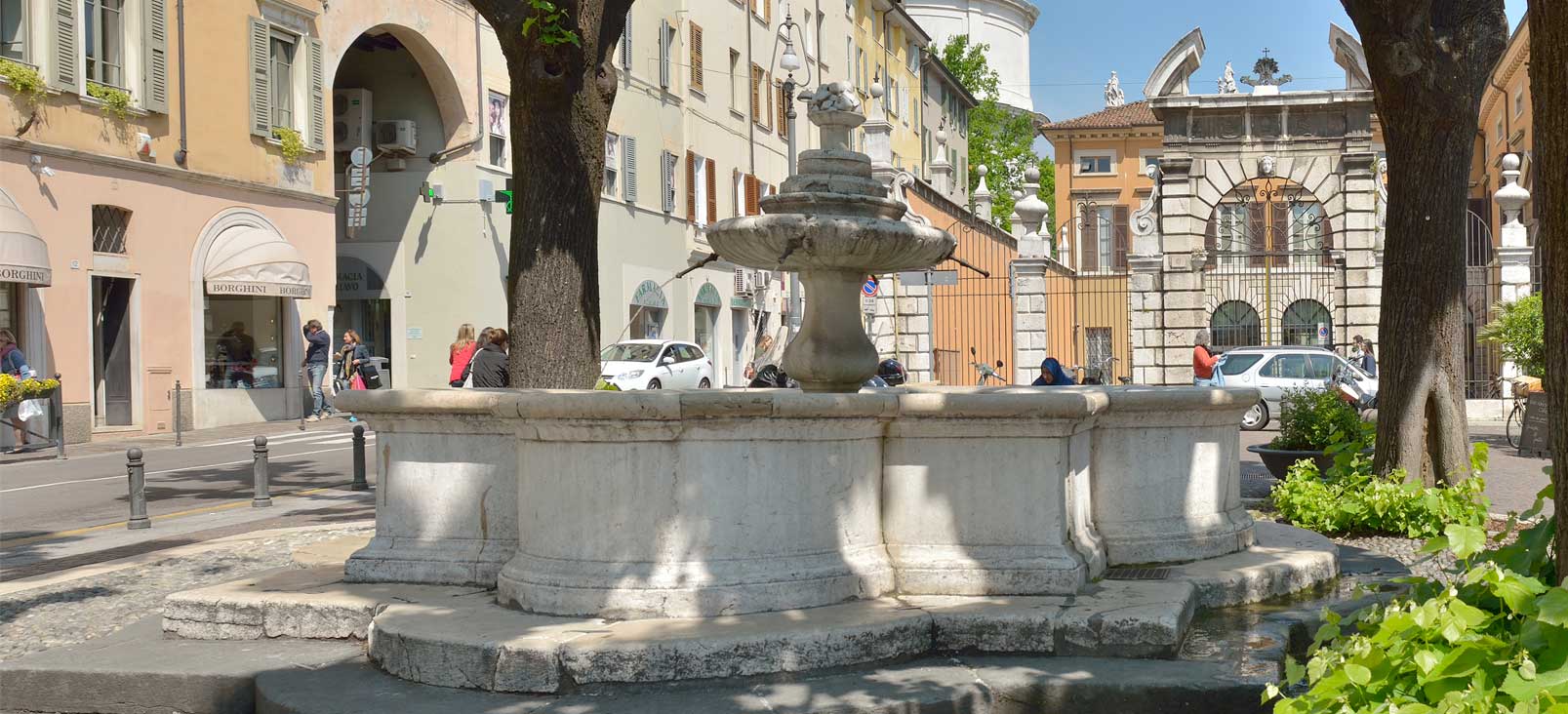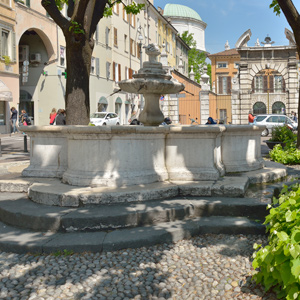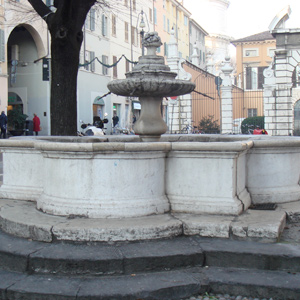Restoration of Piazza Vescovado Fountain
"REVALUATE BRESCIA" PROJECT
The Vescovado Funtain was built before 1750 because it was reproduced in the engraving by F. Battaglioti and F. Zucchi published by Sambuca. It then underwent several changes: it is possible to deduce it from the engraving that highlights how on the side of the fountain there were two rectangular basins, respectively a drinking trough and a public washhouse.
The current location, which sees it protected by lime trees, constitutes a picturesque corner of the city with the railing erected in 1737 by G. B. Marchetti for the Episcopio. An interesting detail concerns its exact location: it is in fact perfectly aligned, with a remarkable effect of perspective, with the fountain that is located under the portico of the northern wing of the Bishopric (today the public library).
The fountain is in Botticino, material naturally characterized by cracks. The tank had cracks that had been grouted with mortar, degraded both by rainwater and by leaks from the tank that allowed the water to escape. The discontinuities of marble has led to a rapid reformation of biological colonization, in particular algae, favoured by the use of tap water, without any control or filter, to power the fountain. The shades of Botticino, usually in white, appeared yellowish.
After the drying up of the fountain, the biocide treatment was carried out; residues of the algal patina were then removed by brushing and the surface was thoroughly rinsed with deionized water. The removal of the calcium carbonate deposit below the biological one was fundamental because it would have led to a rapid growth of algae as soon as water was added again. All the stone surfaces were then thoroughly rinsed with deionized water to eliminate dust deposits and residues from the cleaning packs.
GALLERY


